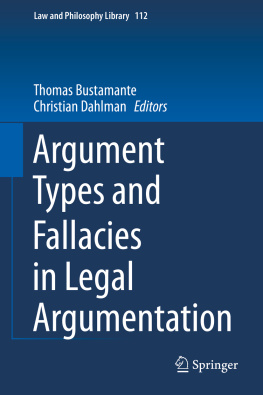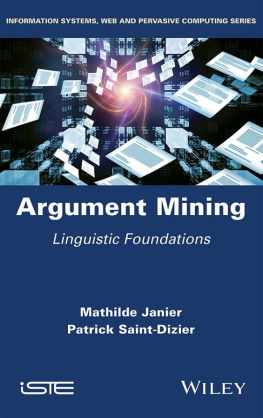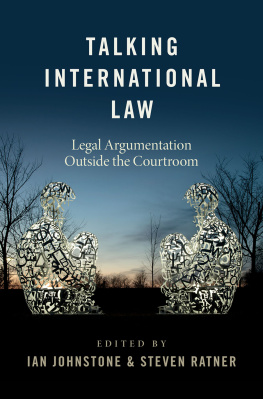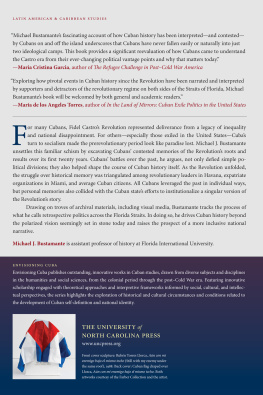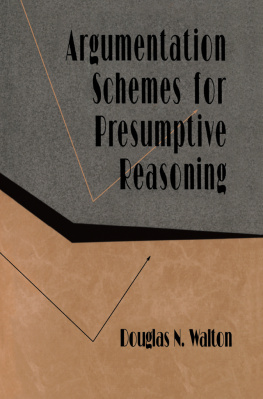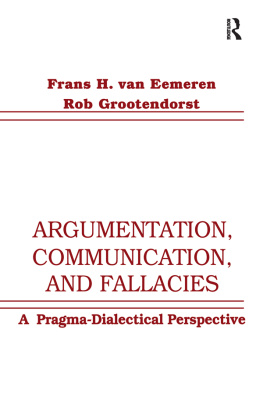1.1 Introduction
Scientific information plays a pivotal role in todays courtrooms. Testimonies of scientific experts have determined the outcome in countless rulings on murder and manslaughter, as well as cases on medical malpractice, product liability, compulsory mental care and other legal issues. Judges and juries often lack adequate scientific knowledge, and must hence to some extent rely on the experts opinions. However, their trust should not be blind. There are both empirical and theoretical reasons to take seriously the risk that an expert witness goes wrong (see e.g. Huber ). Moreover, blind trust does not provide any guidance in the common situation where two experts disagree. Consequently, it is important to devise tools that allow legal decision makers to evaluate experts opinions. This article discusses the notorious difficulties that surround this task and explores some promising, but hitherto largely neglected strategies to avoid them. More precisely, it shows how a straightforward application of Bayes theorem can provide valuable insights into the mechanisms of reliability, and thereby cast doubt on the categorical approaches to appeal to expert opinion that presently dominate argumentation theory. These and similar findings suggest that courts assessments of scientific information could be improved by relatively simple means, and they provide an incentive to elaborate a special method, an expertology, to guide non-experts assessments of expert testimony.
1.2 The Problem with Trust
The tricky thing with experts is how to determine who should be trusted and who should not be trusted. It would be foolish to trust every self-proclaimed expert, so a person who seeks help from an expert must be able to distinguish real experts from fake experts and experts that are highly reliable from experts that are less reliable. This is no easy business. The criteria for distinguishing the reliable from the unreliable must be criteria that can be applied without expert knowledge, since a person in search of a reliable expert does not possess such knowledge. If he had expert knowledge himself he would not need an expert. In this article we will identify some of these criteria and discuss how they can be applied successfully.
It should be mentioned that there are authors who claim that the problem we are addressing is unsolvable. According to these authors it is downright impossible for a non-expert to assess if a person is reliable as an expert or not. Only a person with expertise on the subject issue can assess if someone else is an expert on the issue. It follows from this view that the whole idea of trusting experts is paradoxical. Only a non-expert has the need to trust an expert, but only an expert can assess if someone is trustworthy as an expert. This means that every argument that appeals to authority is fallacious. An argument that appeals to authority claims that we have good reason to trust someone as an expert, but if trust in experts is paradoxical in the way just stated, it can never be the case that we have good reasons to trust someone. If we are non-experts we can never know if the person in question is trustworthy, and if we are experts we have no reason to trust someone other than ourselves.
In a famous article by the judge Learned Hand, published in Harvard Law Review , Hand employed this paradox to criticize the use of expert witnesses. According to Hand, the jury is placed in an impossible position when the prosecution and the defense calls expert witnesses that make contradictory statements and the jury has to assess which expert to trust.
how can the jury judge between two statements each founded upon an experience confessedly foreign in kind to their own? It is just because they are incompetent for such a task that the expert is necessary at all. []
Knowledge of such general laws can be acquired only from a specialized experience such as the ordinary man does not possess [] The jury by hypothesis have no such experience directly, it being of a kind not possessed by ordinary men [] Therefore, when any conflict between really contradictory propositions arises, or any reconciliation between seemingly contradictory propositions is necessary, the jury is not a competent tribunal. [] [the jury] will do no better with the so-called testimony of experts than without, except where it is unanimous. (Hand , 5456)
To solve the paradox Hand proposed that juries should be composed of experts. For every trial, the procedure for selecting the jury should make sure that the jurors are picked among people with expertise in the field of the dispute. In a case of murder by poisoning, the jury should be composed of people with expert knowledge in toxicology, in a case of murder by arson the jury should be composed of people with special knowledge on fires, and so on. In such a system, expert witnesses would no longer be necessary. Evidently, Hands proposition was never adopted by the American legal system. Criminal defendants are still judged by a jury of their peers, not by a jury of experts. And the use of expert witnesses has not ceased. On the contrary, it has increased tremendously (Graham , 35).
In our view, it is not the case that the idea of trusting experts is inherently paradoxical. As many authors have pointed out, we can have good reasons for trusting someone as an expert, even if we do not possess the relevant expert knowledge ourselves (Salmon , 121). Arguments that appeal to authority are not necessarily fallacious, but we need to acknowledge the difficulties that undeniably are associated with appeals to expert opinion, and develop tools that can be used to overcome them. In this article, we will show how Bayes theorem can be used to assess the reliability of a putative expert.
1.3 Expertology and Ad Hominem Arguments
This investigation is a contribution to a research area that we will refer to as expertology, where the assessment of experts and expert testimony is studied, and methods for such assessments are developed. Philosophers and lawyers have discussed expertology for quite some time, albeit not under this name. For example, judges and legislators have developed criteria for the admissibility of expert testimony in court. Some of these criteria are straightforward demarcation criteria, which are meant to distinguish admissible true science from inadmissible pseudo-science. A well-known example is the so-called general acceptance test which was first laid down in Frye v. United States 293 F. 1013, D.C. Circ., 1923 . The Court in Frye held that in order to be admissible, expert testimony must be based on scientific principles and discoveries that are sufficiently established to have gained general acceptance in the particular field (at 1024). Another example is Daubert v. Merrell Dow Pharmaceuticals 509 U.S. 579 (1993) , where the court referred to the works of Karl Popper and Carl G Hempel and identified testability, peer review, error rate and general acceptance as criteria for determining the reliability of expert testimony.

